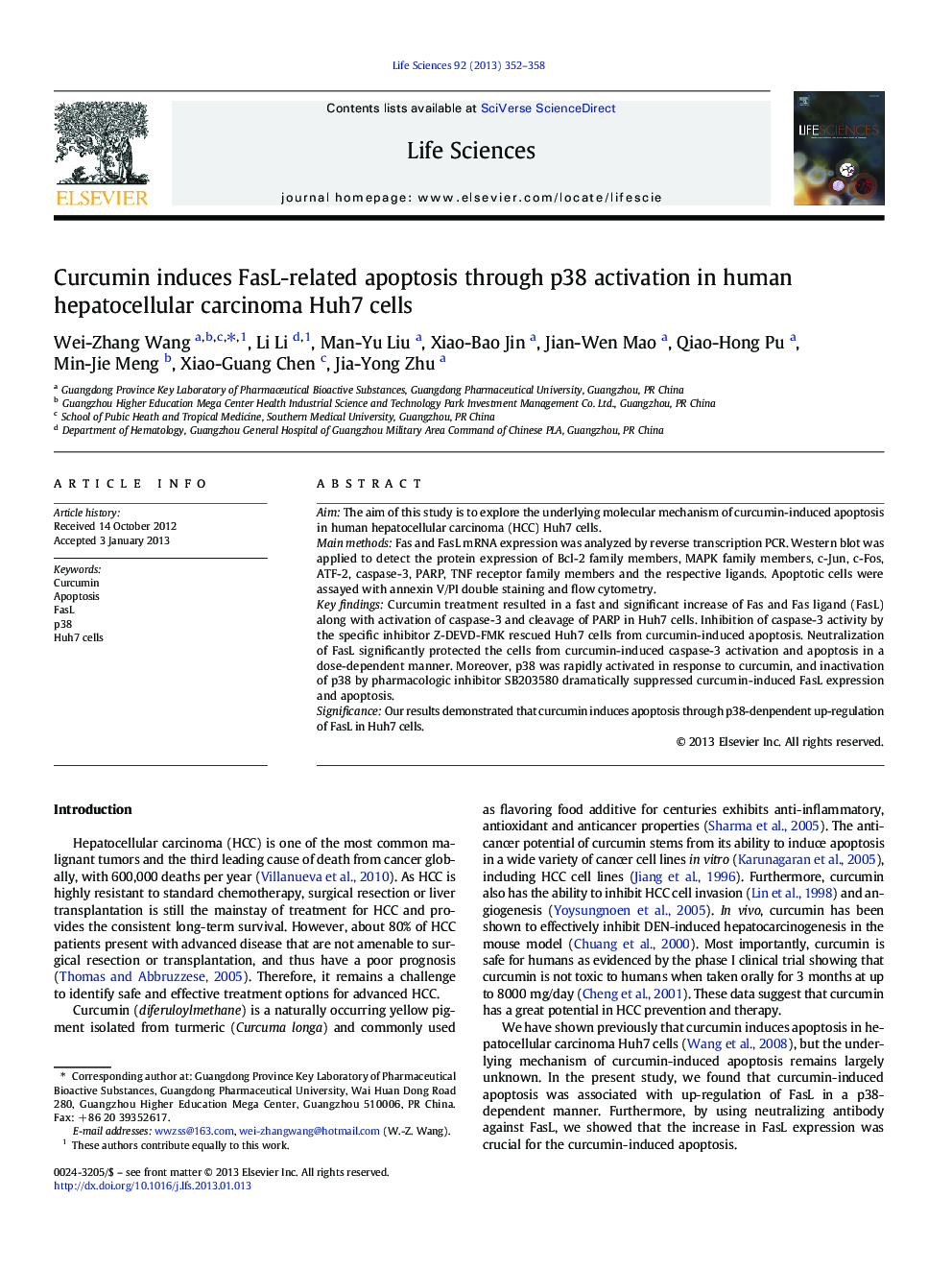| Article ID | Journal | Published Year | Pages | File Type |
|---|---|---|---|---|
| 2551513 | Life Sciences | 2013 | 7 Pages |
AimThe aim of this study is to explore the underlying molecular mechanism of curcumin-induced apoptosis in human hepatocellular carcinoma (HCC) Huh7 cells.Main methodsFas and FasL mRNA expression was analyzed by reverse transcription PCR. Western blot was applied to detect the protein expression of Bcl-2 family members, MAPK family members, c-Jun, c-Fos, ATF-2, caspase-3, PARP, TNF receptor family members and the respective ligands. Apoptotic cells were assayed with annexin V/PI double staining and flow cytometry.Key findingsCurcumin treatment resulted in a fast and significant increase of Fas and Fas ligand (FasL) along with activation of caspase-3 and cleavage of PARP in Huh7 cells. Inhibition of caspase-3 activity by the specific inhibitor Z-DEVD-FMK rescued Huh7 cells from curcumin-induced apoptosis. Neutralization of FasL significantly protected the cells from curcumin-induced caspase-3 activation and apoptosis in a dose-dependent manner. Moreover, p38 was rapidly activated in response to curcumin, and inactivation of p38 by pharmacologic inhibitor SB203580 dramatically suppressed curcumin-induced FasL expression and apoptosis.SignificanceOur results demonstrated that curcumin induces apoptosis through p38-denpendent up-regulation of FasL in Huh7 cells.
